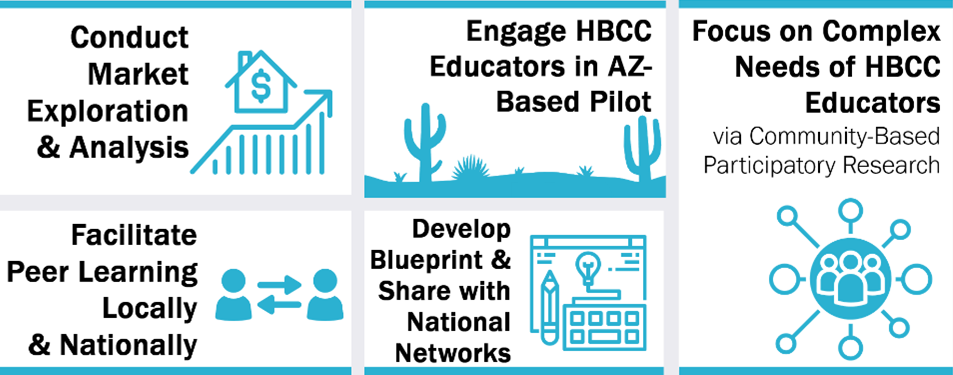Home-based child care (HBCC) providers are educators, small business entrepreneurs, and a critical piece of the caregiving puzzle, meeting the needs of children and families across the country, particularly in historically disinvested communities. Yet, many of them face significant challenges when it comes to finding a home that suits both their personal living needs and the needs of the children in their care.
LISC National Child Care and Early team is collaborating on a pilot program with LISC Phoenix, to organize partners and resources to meet the distinct needs of HBCC providers, with a particular focus on pathways to housing stability – the foundation upon which these businesses are anchored. The program is supported by the Robert Wood Johnson Foundation and aims to bring together a group of thought leaders and organizations focused on key issues like financial empowerment, affordable housing, and homeownership. The goal is to develop solutions tailored to the unique needs of home-based child care providers—whether they live in rural or urban areas, rent or own their homes. The pilot will document and disseminate key learnings and components to provide a blueprint other communities can replicate, to help HBCC providers thrive and influence community well-being.
This project is an essential step toward ensuring that home-based child care providers have the stable housing they need to continue doing their vital work, and it will serve as a model for future solutions across the country.

Program objective
By bringing together key partners in housing, financial education, and small-business development, LISC is helping to lay the groundwork for a model that can be expanded to communities across the nation to foster the local conditions required for housing stability among HBCC educators.
Our approach
LISC will explore and document the short- and long-term strategies to realize housing autonomy and stability for HBCC educators via two pathways: individual homeownership and access to appropriate rental spaces.
For HBCC educators, the path to housing and economic stability is fraught with barriers including a fragmentated system of supports that can be difficult to access. This project will explore how to best integrate and leverage the following systems and resources: financial opportunity programs, capital access, housing markets, child care system resources, and engaged stakeholder partnerships.

Learn more
A Place for Caregiving: LISC Strengthens Housing Stability for Home-Based Child Care Providers
Read the recent Q&A with LISC experts to dive deeper into this pilot program supported by the Robert Wood Johnson Foundation.
Join Our Efforts
If you are a mission-aligned organization working on objectives related to the intersection of child care, housing, financial stability, and workforce with interest in participating in our national peer learning exchange or simply would like to learn more about this project as it takes shape, please fill out our interest form.